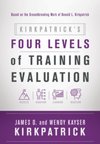
-
 Nemecký jazyk
Nemecký jazyk
Robert Jackall's book "Moral Mazes". An analysis from a transformational leadership perspective
Autor: Kim Julian Nestel
Studienarbeit aus dem Jahr 2015 im Fachbereich BWL - Unternehmensführung, Management, Organisation, Uppsala Universitet, Sprache: Deutsch, Abstract: In his book "Moral Mazes" Robert Jackall describes the findings of his study on how bureaucracy shapes moral... Viac o knihe
Na objednávku, dodanie 2-4 týždne
16.65 €
bežná cena: 18.50 €
O knihe
Studienarbeit aus dem Jahr 2015 im Fachbereich BWL - Unternehmensführung, Management, Organisation, Uppsala Universitet, Sprache: Deutsch, Abstract: In his book "Moral Mazes" Robert Jackall describes the findings of his study on how bureaucracy shapes moral consciousness in American organizations. The study is based on an extensive fieldwork and Jackall explicitly studied managers' rules for survival and success in the corporations as these goals proved to be the uppermost in managers' minds.
According to Jackall these rules are at the heart of a moral code, called bureaucratic ethic, that guides managers through all the dilemmas and vicissitudes that confront them in big organizations. As bureaucratic routinizes people's lives by engaging them on a daily basis in rational, socially approved, purposive action it shapes their consciousness in decisive ways. Furthermore as even personal relationships are governed by explicit or implicit organizational rules, procedures and protocol, bureaucratic work causes people to bracket, while at work, the moralities that they might hold outside the workplace. Instead it makes the people follow the prevailing morality of their particular organizational situation. On a day-to-day basis the moral rules-in-use within the personal and structural constraints of one¿s organizations matter and these rules may vary sharply depending on various factors, such as proximity to the market, line or staff responsibilities, or one¿s position in a hierarchy. Therefore organizational moralities are contextual, situational, highly specific, and, most often, unarticulated.
Given Jackall's findings it is difficult to see a place for personal ethics in modern organizations at all. According to Jackall morality does not emerge from some set of internally held convictions or principles, but rather from ongoing albeit changing relationships with some person, some coterie, some social network, or some clique that matters to a person. As these relationships are multiple, contingent, and in flux, managerial moralities are always situational and relative.
This paper is concerned with the question how this ethical dilemma can be solved. Therefore important ethical issues of Robert Jackall's findings are analyzed from a transformational leadership perspective. The aim of the analysis is to draw conclusions in which way transformational leaders can overcome these issues in order to improve the leadership processes and bring ethics back in organizations.
- Vydavateľstvo: GRIN Verlag
- Rok vydania: 2017
- Formát: Paperback
- Rozmer: 210 x 148 mm
- Jazyk: Nemecký jazyk
- ISBN: 9783668233737



 Anglický jazyk
Anglický jazyk 







